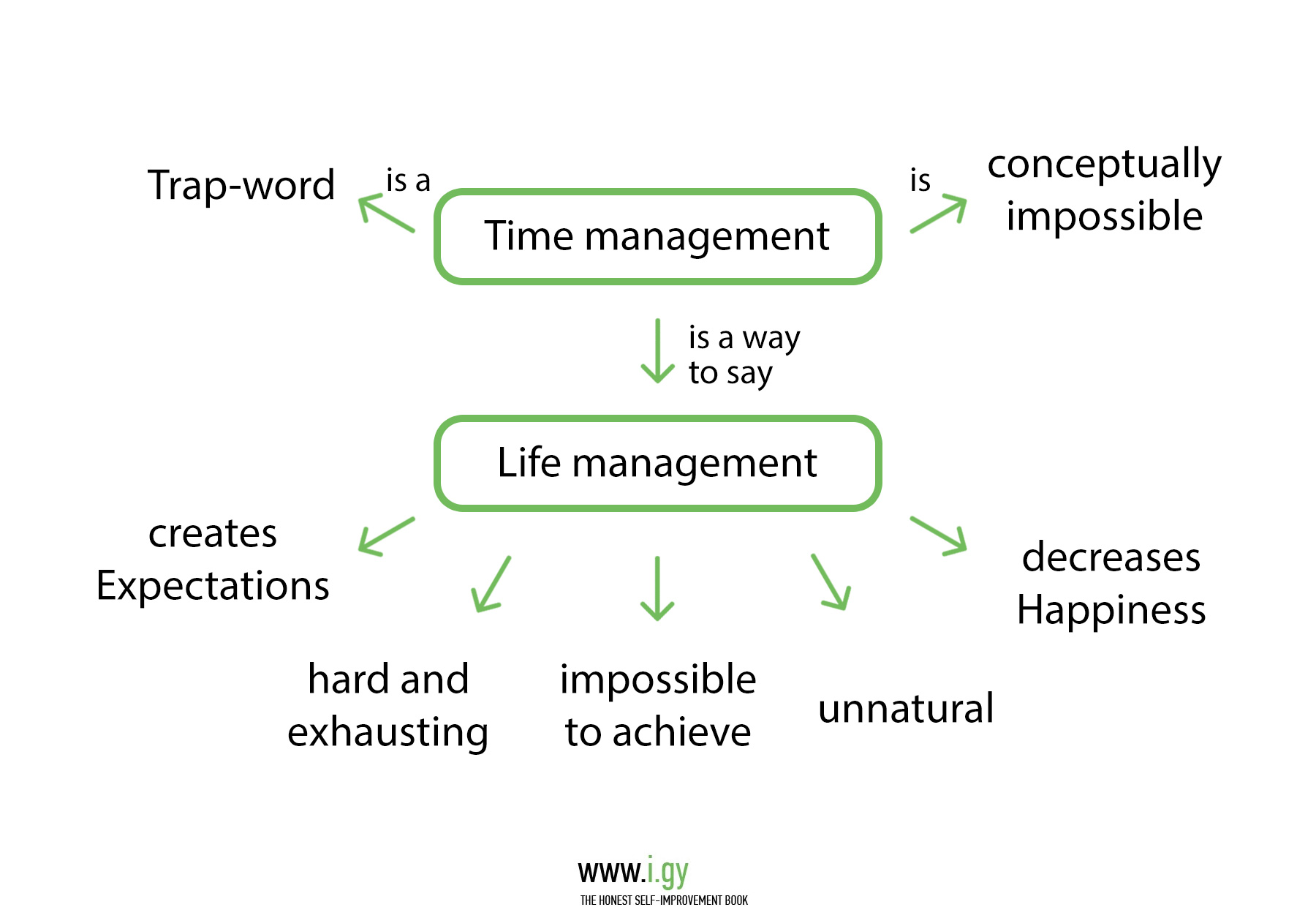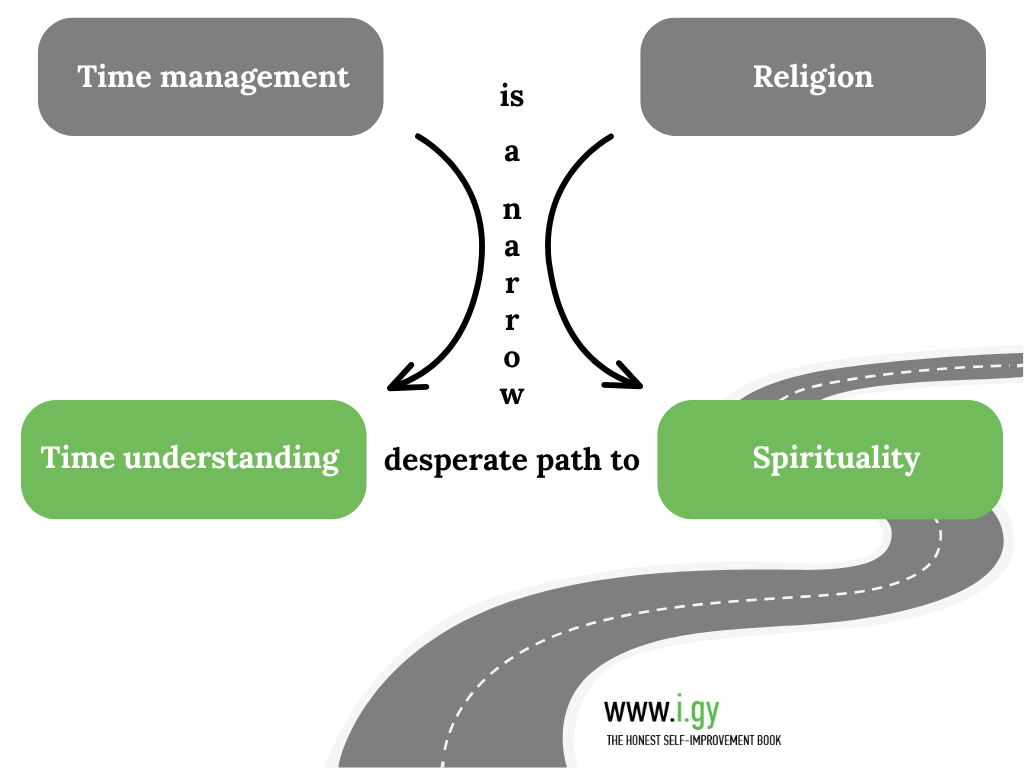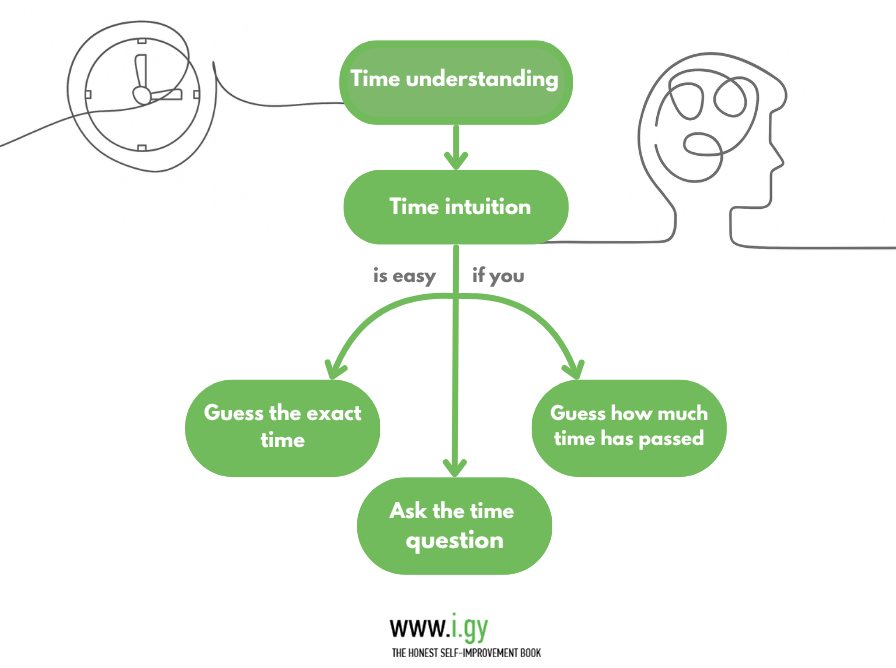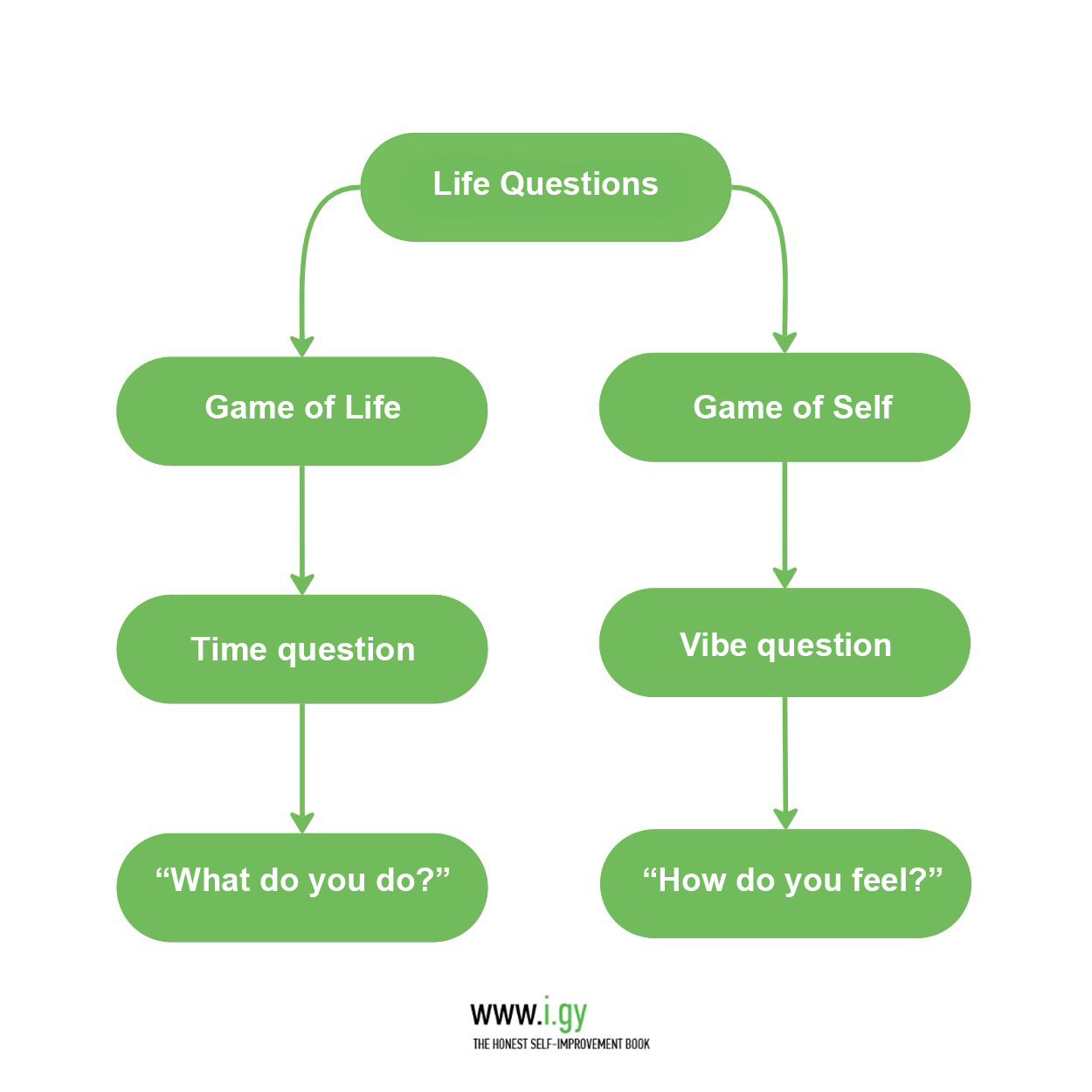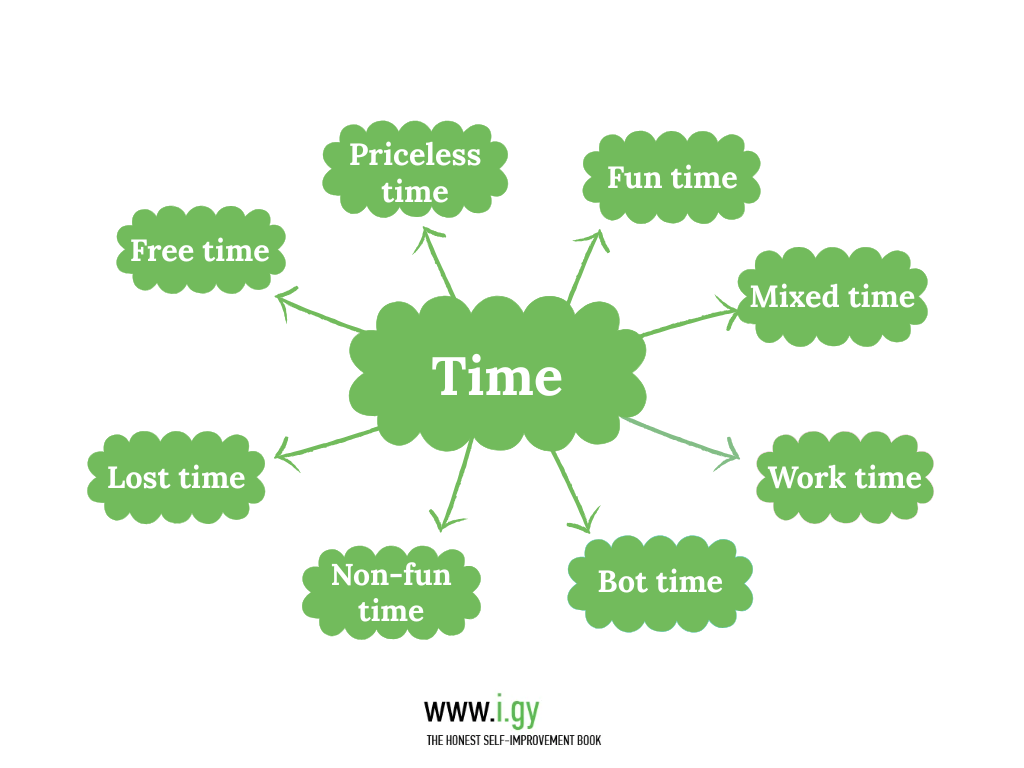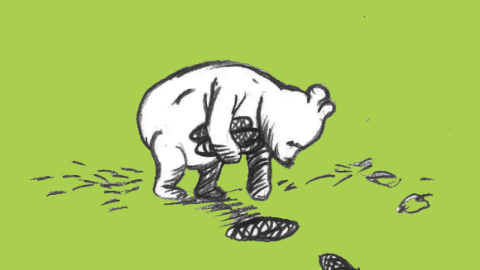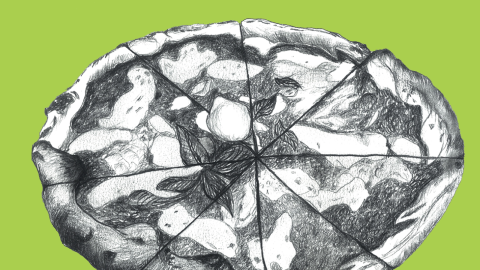People who never have enough Time are fed the delusion that the solution is Time management skills.
To manage Time is to try to manage a huge river you’re swimming in. It not only doesn’t work, it’s conceptually impossible. What people actually mean comes down to:
- Better Priorities
- Increasing Productivity
- Getting rid of addictive Time-wasting habits
Time management is a sneaky way to say Life management.
And Life management is hard, unnatural, exhausting, impossible to fully achieve, creates expectations and decreases happiness. If you live with the right mindset (the Hunter one), you don’t need Life management.
Things just happen, and happen mostly great when you give up control. When you stop managing your life.
Never expect a direct effort for control to have high success rate – people will resist, even if they don’t know why, because deep down we all feel the importance of adaptability for survival and prefer to keep our options open.
It’s your responsibility to understand Time.
It’s a purely intuitive skill that is not taught anywhere. It’s about feeling the Flow of Time and adjusting the timestamps of your life and work to it.
You should have an intuitive answer what you can do that you expect to take exactly 7 minutes. That will meaningfully improve your work or your life.
Only among Entrepreneurs and freelancers I have ever found people with developed Time Intuition.
The more Time understanding you have, the harder it is to be ok with clueless systems wasting Time and disregarding natural rhythm. We deserve a smoother experience and we should fight for it when possible.
Time understanding will help you feel how your life develops in Time. Life will no longer be a static picture of the present, the memories of the past and the thoughts about the future. It will feel like a continuum and more wholesome.
You will feel when something is too fast, too slow or too repetitive. It’s like a whole new level of consciousness that keeps you Time-healthy and Time-effective (fighting Inertia better).
And based on this feeling you can work and grow blazingly fast while being patient about the things in life you cannot really force on the Time scale and may have to wait for years (Love)
Time management is a narrow, desperate path to Time understanding, when you give up and outsource it to another entity, one that imposes rules on you – something which hurts your Time Intuition.
And if the other entity is your logical self rather then an external force, it’s worse. Your logical brain does not trust your intuitive brain and they cannot work together. So the moment you start relying on rules, your Intuition goes to sleep.
A much better approach to Time understanding is to seek your personal intuitive blend of Time management (the one that feels right) and build concepts, rather than rules. And constantly learn and adapt.
How do we achieve the intuitive skill of Time understanding?
Intuition is built from experience. You need data points. You can play two simple mental games.
Game 1: Every time you are going to check the Time, first think what the Time is and then check the real Time and see how much off you are. No rounding up, always say the exact minute. Then think if it sounds too early or too late. Intuition is best with binary choices and training this is very important. We’re so terribly used to round numbers that it takes 2 steps to reach the better result.
After you do this a thousand times you will find out you are getting significantly better at it. You change how your brain perceives the things you do and how much Time they take. A rare window into your Intuition. Another key observation is that the moment you feel even a bit anxious about the guess, the Intuition vanishes and you make big errors. This shows why we must not pressure ourselves and Intuition will work much better for us in our lives as fears will not cloud our gut feeling for it.
In moments of real Happiness and immersion with your surroundings your internal clock slows down compared to reality.
Game 2: When you have a recent nice memorable “anchor” event in your life, from time to time compare how much Time you think has passed since the event. Then calculate the actual Time. It’s much more Self-loving to track the years passing by with the beautiful things that happen to you, rather than by your age.
This will make you feel grateful about the amazing things in life.
The idea of the games is to create data points that will help you feel not just how much Time passes, but also to relate this feeling to the things you do and their actual value to you, so you know if the Time spent on non-essential and non-fun activities is worth it.
Time understanding will offer you more than effectivity. It will offer you Self-love and creative adaptability, using Time as the grid to massively improve on everything. It will make you better at work and happier in life, more than you can imagine.
Building our Time Intuition takes almost no effort as the data points are already around us, we experience Time all the time. But it takes… Time.
It’s of paramount importance to ask others “the Time question” until you have the Intuition developed.
“What do you do all day?” If possible, give me a minute by minute breakdown of your typical day or working hours.
Ask the Time question everywhere. Use it to ask people about their work, students about their study and parents about their parenting. It’s the most educational (for you) question you can ask someone along with “the Vibe question“: “How do you feel?“. These are the two questions that bring life detail and nuance.
While “How do you feel?” is the central Game of Self question, “What you do in your day?” is the central Game of Life question. Ask it when you want to know. Ask it when you care. Ask it so you’re in touch with reality.
Time understanding can help you indirectly with your mental health. If you want progress in the Game of Self, the smart way is to set up such a Game of Life environment that fosters this Change. Constructing certain situations in the Game of Life is not easy as many factors are not under your control. If you don’t have the Intuition about how everything behaves and evolves over Time, you cannot really construct.
It’s important that your constructions stay on the intuitive level and don’t become logical concrete plans and it’s important that your constructions do work, as while conceptual and vague in nature, they are important to improve your wellbeing.
If you don’t apply pressure and logic and leave them to Intuition and creativity, constructions work. You secretly like them, because just like the seeds of ideas in the masterpiece Inception, they are your own creations.
This is why I Grow Younger doesn’t give a lot of concrete advice – we’re leaving you space to create constructions of your own, so they are yours.
Here some important principles:
Priceless time always has complete priority, then comes a mess of Time / Money and your other values. Try to simplify and remember that Current money is a hard necessity, Future money is easy, but one day the Future money will be the Current money of today and you want to be in a better place then that your current one. And the way is to aim high and thus leave only the best low-risk-high-reward options to get there. Focus on Money or Meaning or both if strong. When something no longer feels a worthy Time investment, quit immediately. Learn to say “no” and don’t dwell in the past.
Many studies show that Happiness increases with age. Indeed you get wiser, smarter, freer, richer, more loving and more successful. Having more Resources also means you can afford to share and give more, which is a huge driver of Happiness.
The name I Grow Younger itself comes from the idea that you can be your better self in Time. Younger not by age (a meaningless number) but young inside – happy, creative, curious and joyful. And Time is with you on this journey. If you understand it, rather than try to manage it with force. Time is a river and rivers don’t care about force. Don’t put pressure on your rhythm, if you’re happy and motivated, you’ll be growing fast, if you have given yourself the freedom to grow at any speed.
I’ll leave you with what the beautiful “If” poem by Rudyard Kipling says about time:
If you can fill the unforgiving minute
With sixty seconds’ worth of distance run,
Yours is the Earth and everything that’s in it,
And—which is more—you’ll be a Man, my son!

